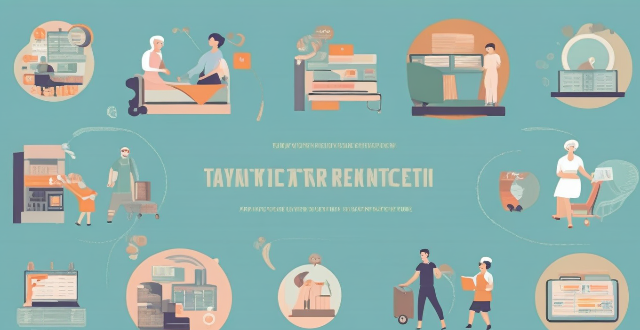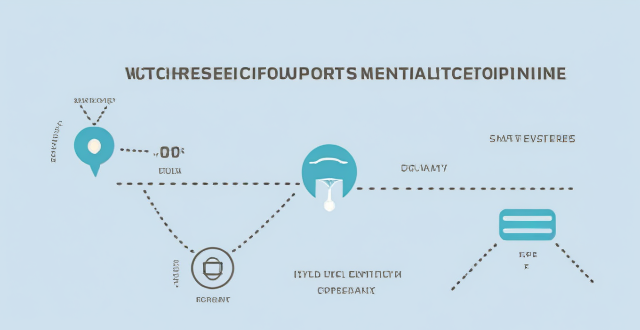Support Psychological

How do climate disasters affect the psychological resilience of affected populations, and what support systems can be put in place ?
Climate disasters, such as hurricanes, floods, wildfires, and droughts, can have a profound impact on the psychological resilience of affected populations. Psychological resilience refers to the ability to cope with adversity, adapt to change, and bounce back from difficult situations. When faced with climate disasters, individuals and communities may experience stress, anxiety, depression, and post-traumatic stress disorder (PTSD). Effects of Climate Disasters on Psychological Resilience: - Loss of Property and Livelihoods: Climate disasters often result in the loss of homes, businesses, and livelihoods. This can lead to financial instability, which is a significant source of stress and anxiety for many people. - Displacement and Uprooting: In severe cases, climate disasters can force people to relocate or evacuate their homes temporarily or permanently. This displacement can disrupt social networks and support systems, leading to feelings of isolation and despair. - Trauma and Grief: Witnessing or experiencing injury, loss of life, or damage to property can cause traumatic reactions. Grief over lost loved ones or familiar surroundings can also affect mental health. - Uncertainty and Fear: The unpredictable nature of climate disasters can create ongoing uncertainty about future events, leading to chronic stress and fear about potential threats. - Health Concerns: Exposure to extreme weather conditions or contaminated water sources can raise concerns about physical health, adding another layer of stress. Support Systems for Enhancing Psychological Resilience: To help affected populations cope with the psychological impacts of climate disasters, various support systems can be put in place: Community-Based Support: - Counseling Services: Providing access to mental health professionals who can offer counseling services to those affected by climate disasters. - Support Groups: Creating peer support groups where individuals can share their experiences and provide mutual support. - Community Events: Organizing community events that promote social interaction and foster a sense of belonging within the community. Government Interventions: - Financial Aid: Providing financial assistance to help individuals and families rebuild their lives and recover from economic losses. - Housing Solutions: Ensuring adequate temporary housing while reconstruction takes place and investing in more resilient infrastructure to minimize future risks. - Educational Programs: Implementing educational programs that teach coping strategies and preparedness for future climate events. Non-Governmental Organizations (NGOs): - Emergency Relief: Providing immediate relief efforts such as food, water, and medical supplies to affected areas. - Rehabilitation Projects: Undertaking rehabilitation projects that focus on restoring livelihoods and rebuilding communities. - Awareness Campaigns: Conducting awareness campaigns to educate the public about the psychological effects of climate disasters and available resources for support. International Cooperation: - Global Funding: Securing global funding for countries heavily impacted by climate disasters to support recovery efforts. - Research Collaboration: Engaging in international research collaborations to study the long-term psychological effects of climate disasters and develop best practices for intervention. - Capacity Building: Working with developing nations to build capacity for mental health services and disaster response.

How do psychological factors influence sports performance and research ?
This document discusses the influence of psychological factors on sports performance, emphasizing the importance of motivation, confidence, concentration, resilience, and team dynamics. It highlights how these elements can enhance or hinder athletic performance and underscores the significance of research in understanding and applying psychological principles to optimize athlete mental states. The text concludes by noting the potential for ongoing research to refine our comprehension and application of psychology in sports, aiming to help athletes achieve their full potential mentally and physically.

What are some common psychological challenges faced by athletes and how can they be addressed ?
Athletes face numerous psychological challenges that can impact their performance, well-being, and success. These include performance anxiety, fear of failure, pressure to win, comparison to others, and recovery from injury. Addressing these challenges through mindfulness training, goal setting, cognitive reframing, mental toughness training, balanced perspectives, and support systems can improve an athlete's mental game and overall well-being.

In what ways do extreme weather events influence human behavior and psychological well-being ?
Extreme weather events, such as hurricanes, floods, heatwaves, and droughts, have significant impacts on human behavior and psychological well-being. These effects can be seen in various aspects of life, including physical health, mental health, social interactions, and economic stability. The physical health impacts include increased risk of injury or death, exacerbation of chronic conditions, and spread of disease. The mental health impacts include acute stress reaction, post-traumatic stress disorder (PTSD), grief and loss. The social interactions impacts include community cohesion and disruption of social networks. The economic stability impacts include financial strain and job loss and unemployment. In conclusion, extreme weather events have far-reaching impacts on human behavior and psychological well-being that extend beyond the initial incident itself. Addressing these challenges requires comprehensive strategies that consider both short-term relief efforts and long-term resilience building measures aimed at enhancing individual, community, and societal adaptive capacities.

What are the psychological benefits of exercise for the elderly ?
Exercise for the elderly has several psychological benefits, includingExercise for the elderly has several psychological benefits, including symptoms, enhanced cognitive function, including mood improvement, reduced depression symptoms, enhanced cognitive function, increased social interaction, and better sleep quality. Regular physical activity boosts endorphins, reduces anxiety and stress, improves brain health, delays age-related cognitive decline, promotes community engagement, increases independence, and regulates sleep patterns. These benefits contribute to better mental health and well-being in older adults.

What is the role of a female therapist in treating women's psychological problems ?
The text discusses the role of a female therapist in treating women's psychological problems, emphasizing empathy, understanding, building trust, addressing gender-specific issues, and providing supportive interventions. The article suggests that women may feel more comfortable sharing their experiences with someone who can relate to their struggles and acknowledges the importance of validation for women who have been dismissed or minimized by others. Building trust is essential, especially for women who have experienced trauma or abuse, and creating a safe space involves establishing clear boundaries and maintaining confidentiality. Cultural sensitivity is also crucial when working with women from different backgrounds. Addressing gender-specific issues such as reproductive health concerns, body image, and trauma requires specialized treatment approaches. Providing supportive interventions like mindfulness practices and group therapy can help women connect with others and receive support from peers. Overall, the role of a female therapist is multifaceted and involves creating a safe and non-judgmental space to help women navigate their unique challenges and work towards improved mental health outcomes.

What are the psychological benefits of connecting with nature, and how can they mitigate the effects of climate change ?
Connecting with nature has numerous psychological benefits that can significantly improve our mental and emotional well-being. These benefits include reducing stress and anxiety, boosting mood and happiness, improving concentration and cognitive function, enhancing creativity, promoting emotional resilience, and fostering mindfulness and present-moment awareness. Additionally, the psychological benefits of connecting with nature play a crucial role in mitigating the effects of climate change by increasing environmental awareness, promoting sustainable behaviors, inspiring collective action, and encouraging policy changes. By recognizing the importance of nature for our mental health and taking action to protect it, we can work towards a healthier planet and a happier population.

What are the psychological impacts of climate change on children ?
The psychological impacts of climate change on children can be significant and far-reaching, including anxiety and fear, a sense of helplessness, loss of connection to nature, trauma, and grief and mourning. It is essential for parents, educators, and mental health professionals to recognize and address these impacts to support the mental health and well-being of children affected by climate change.

What are the psychological benefits of group exercise for older adults ?
The article discusses the psychological benefits of group exercise for older adults, including increased social interaction, enhanced cognitive function, and increased motivation and accountability. It emphasizes how group exercise can reduce feelings of isolation and loneliness, improve mood and mental health, stimulate brain activity, delay the onset of cognitive decline, provide peer support and encouragement, and promote goal setting and achievement. Overall, it suggests that participating in group exercise activities can greatly enhance the overall well-being of older adults and contribute to a higher quality of life as they age.

What are the psychological benefits of participating in sports ?
Participating in sports can have numerous psychological benefits that extend beyond physical health. Here are some of the key advantages: - **Improved Mood and Reduced Stress**: Boosts endorphins, decreases cortisol levels, and helps to lower stress. - **Enhanced Self-Esteem and Confidence**: Achievement and mastery in sports boost self-esteem, while social interaction increases confidence. - **Better Sleep Quality**: Regular exercise leads to physical fatigue and relaxation, improving sleep patterns. - **Increased Resilience and Mental Toughness**: Overcoming adversity in sports builds resilience, while goal-oriented pursuits foster mental toughness. - **Social Support and Connection**: Teamwork and camaraderie provide a network of support, while shared experiences create bonds and friendships. - **Improved Cognitive Function**: Studies suggest regular exercise can lead to increased brain volume and improved cognitive function. - **Emotional Regulation and Coping Mechanisms**: Sports provide an outlet for expressing and managing emotions like anger or frustration, and athletes learn to cope with high-pressure situations. - **Positive Addiction and Avoidance of Unhealthy Habits**: Sports can become a positive addiction, replacing less healthy habits, and require time management, reducing idle time that could lead to unhealthy behaviors.

How does team sports impact psychological well-being ?
Participating in team sports can have a significant impact on an individual's psychological well-being. Team sports provide opportunities for social interaction, physical activity, and personal growth, all of which contribute to overall mental health. Social interaction reduces feelings of loneliness and isolation, while physical activity improves mood and reduces symptoms of anxiety and depression. Personal growth through learning new skills or overcoming challenges builds resilience and confidence. Team sports also provide a healthy outlet for stress relief and require discipline and time management skills that can translate into other areas of life. Overall, participating in team sports can improve mental health and quality of life.

What are the psychological effects of winning or losing in competitive sports ?
Winning or losing in competitive sports can have significant psychological effects on athletes, ranging from increased confidence and motivation to feelings of disappointment and frustration. Winning can boost an athlete's self-confidence, motivate them to continue striving for excellence, and improve their mental health. Losing can lead to feelings of disappointment, decreased confidence, and increased stress and anxiety. To manage these effects, athletes should develop effective coping strategies such as mindfulness, positive self-talk, goal setting, seeking support, and relaxation techniques. By doing so, they can maintain a healthy mindset both on and off the field.

Can studying the psychological effects of climate change help in developing more effective adaptation strategies ?
This article explores how understanding the psychological effects of climate change can contribute to developing effective adaptation strategies. It outlines key areas such as impact on mental health, influence on behavioral change, public perception and awareness, community resilience, and policy making processes. By addressing these areas, it is possible to create more resilient and sustainable communities in the face of climate change.

What are the psychological and social impacts of living in a world affected by global warming ?
Living in a world affected by global warming can have significant psychological and social impacts on individuals and communities, including increased stress and anxiety, changes in mood and emotional well-being, cognitive effects, changes in social dynamics, impacts on mental health services, and societal responses such as adaptation and collective action. These impacts highlight the urgent need for action to address climate change and support the well-being of those affected by its consequences.

What are the psychological effects of climate change on children, and how can their mental health rights be protected ?
The psychological effects of climate change on children are significant and can include anxiety, fear, depression, trauma, and grief. To protect children's mental health rights, it is important to educate them about climate change, provide access to mental health services, create safe spaces for expression, and encourage advocacy and action.

How can schools best support students with special education needs ?
Schools can best support students with special education needs by implementing individualized education programs, fostering inclusive classrooms, encouraging collaborative teamwork, providing differentiated instruction, offering accessible learning materials, and adopting positive behavioral interventions and supports.

How do psychological factors, such as confidence and self-belief, affect an athlete's ability to perform at their best ?
This topic summary discusses the importance of psychological factors in athletic performance, focusing on confidence and self-belief. Confidence is defined as belief in one's abilities, skills, and judgment, while self-belief is more about internalizing one's capabilities and potential for success. Both are crucial for mental preparation, risk-taking, resilience, motivation, teamwork, goal setting, persistence, visualization, feedback interpretation, and stress management. Strategies for building confidence and self-belief include positive self-talk, mental rehearsal, goal setting, reflection, and having a strong support system. The text emphasizes that these psychological elements are integral to athletic success, enabling athletes to overcome obstacles and reach their full potential.

What are the psychological effects of social media on teenagers ?
This article discusses the psychological effects of social media on teenagers, including increased anxiety and depression due to comparison with others' lives, fear of missing out (FOMO), cyberbullying, disrupted sleep patterns, decreased face-to-face interaction, body image issues, and cyberchondria. Parents and educators should monitor their children's social media usage and encourage healthy habits to help them navigate these challenges.

What psychological factors contribute to the denial of environmental problems ?
The article discusses the psychological factors contributing to the denial of environmental problems. It mentions cognitive bias, emotional factors, and social influence as the main contributors to this issue. Cognitive bias includes confirmation bias and availability heuristic, which lead individuals to process information in a way that confirms their existing beliefs and values. Emotional factors such as fear, anger, and sadness can arise when confronted with environmental issues and lead to avoidance or denial. Social influence, including groupthink and social norms, can also contribute to the denial of environmental problems. Understanding these factors is crucial for promoting sustainable behavior and addressing environmental issues effectively.

Can existing devices support 5G network ?
This article discusses whether existing devices can support 5G network and what factors influence this compatibility. The most important factor determining whether a device can support 5G is its hardware, including the modem, antenna, and other components required for 5G connectivity. Another factor that can affect compatibility is the software on your device, such as an outdated operating system or lack of necessary drivers and firmware updates. Finally, even if your device has the necessary hardware and software, you still need to have a carrier that supports 5G in your area. To check if your device is compatible with 5G, you can check your device's specifications, ensure that it is running the latest operating system and has all necessary drivers and firmware updates installed, contact your carrier to see if they offer 5G service in your area and if your plan includes access to this network, and consult with a professional or contact the manufacturer for assistance.

What types of infrastructure are needed to support widespread use of electric vehicles ?
The widespread adoption of electric vehicles necessitates the development and expansion of various types of infrastructure to support their charging needs, including public and residential charging stations, energy infrastructure, information systems, maintenance and support services, and urban planning and design.

Can the new iPhone model support dual SIM cards ?
The latest iPhone models support dual SIM cards, offering users more flexibility and convenience when managing their calls and messages. Key features of dual SIM support include dual standby, data switching, international travel, and separate work and personal numbers. To set up dual SIM on your iPhone, insert two Nano-SIM cards, enable dual SIM support in settings, choose a default line, assign labels to each SIM card, and manage data plans accordingly.

Five minutes of plate support every day to improve posture and unlock the correct posture of plate support

**Does Apple provide customer support for solving iCloud sync issues ?
Apple offers various support channels for solving iCloud sync issues, including a website with troubleshooting guides, online chat and phone support, in-person assistance at Apple Stores or authorized providers, email support, and community forums. These options ensure that users can find help suited to their preferences and needs.

What are the most common types of fan support activities for musicians ?
Musicians depend on various fan support activities to build their careers, including attending concerts, streaming music, following on social media, participating in online communities, writing reviews, creating fan art, and organizing fundraising campaigns. These activities help generate income, increase exposure, strengthen connections with fans, and provide valuable feedback and support for musicians' endeavors.

How do fan support events impact an artist's success and popularity ?
Fan support events play a crucial role in shaping an artist's success and popularity by increasing visibility, strengthening fan loyalty, providing monetization opportunities, and enhancing reputation and credibility. These events offer platforms for fans to connect with artists, generate media coverage, create social media buzz, foster personal connections, offer exclusive experiences, sell merchandise, increase ticket sales, gain industry recognition, and influence critic opinions. Overall, fan support events are essential components of an artist's career development strategy.

How can schools support the holistic development of teenagers ?
Schools play a crucial role in the holistic development of teenagers by providing various support systems. Here is a breakdown of how schools can support the overall growth of young individuals: ### **Academic Excellence** - **Curriculum Design**: Offer a diverse range of subjects to cater to different interests and aptitudes. - **Extracurricular Activities**: Encourage participation in sports, arts, music, etc., to promote physical health and creativity. - **Mentorship Programs**: Pair students with mentors for academic and personal guidance. - **Study Skills Workshops**: Conduct workshops on time management, note-taking, and test preparation. ### **Emotional Well-being** - **Counseling Services**: Provide mental health support and address personal issues. - **Stress Management Classes**: Teach techniques like meditation, yoga, or mindfulness. - **Social Emotional Learning (SEL) Programs**: Integrate SEL into the curriculum to develop emotional intelligence. - **Peer Support Groups**: Create safe spaces for sharing experiences and mutual support. ### **Character Building** - **Moral Education**: Incorporate values like integrity, respect, and responsibility into school culture. - **Community Service Projects**: Foster empathy and social responsibility through volunteering. - **Leadership Opportunities**: Allow students to take on leadership roles within the school community. - **Cultural Exchange Programs**: Promote diversity through cultural exchange programs or international trips. ### **Career Planning** - **Career Counseling**: Offer guidance based on individual strengths and interests. - **Internships & Apprenticeships**: Partner with local businesses for hands-on experience. - **College & University Fairs**: Host fairs for interaction with higher education representatives. - **Entrepreneurship Clubs**: Support entrepreneurial endeavors through clubs or classes focused on business skills. ### **Health & Physical Well-being** - **Physical Education**: Ensure regular PE classes to promote fitness. - **Health Education**: Teach about nutrition, substance abuse prevention, and wellness. - **Sports Teams**: Organize competitive and recreational sports teams. - **Health Services**: Have nurses or health professionals available for medical advice and first aid. ### **Technology & Innovation** - **Computer Literacy Courses**: Teach basic computer skills and programming concepts. - **STEM Clubs**: Foster interest in STEM through extracurricular clubs. - **Digital Citizenship**: Educate about responsible internet use and digital ethics. - **Innovation Labs**: Establish spaces for creative projects and research using modern technology. ### **Environmental Stewardship** - **Sustainability Initiatives**: Implement recycling programs and energy-saving measures. - **Green Clubs**: Form environmental clubs focusing on conservation efforts. - **Field Trips**: Visit national parks, nature reserves, or sustainability centers. - **Service Learning Projects**: Connect classroom learning with real-world environmental issues. By adopting these strategies, schools create an environment that nurtures the intellectual, emotional, moral, physical, and creative aspects of teenagers' lives, preparing them for success in all facets of adulthood.

How can parents and teachers effectively collaborate to support student learning ?
Effective parent-teacher collaboration requires open communication, shared goals, consistent expectations, and supportive resources. By working together, parents and teachers can create a positive learning environment that fosters academic success and personal growth for students.

What banks and credit card providers support Apple Pay ?
Apple Pay is a mobile payment and digital wallet service that works with Apple devices. It allows users to make secure purchases in person, in iOS apps, and on the web using Safari. Many banks and credit card providers support Apple Pay, including Bank of America, Capital One, Chase, Citi, Wells Fargo, American Express, Discover, MasterCard, and Visa. Adding your card to Apple Pay is a straightforward process involving opening the Wallet app, tapping the plus sign, and following the steps to add a new card. The availability of Apple Pay and the specific cards it supports may vary by country or region, so it's important to check with your bank or card issuer to confirm compatibility and get any necessary instructions.